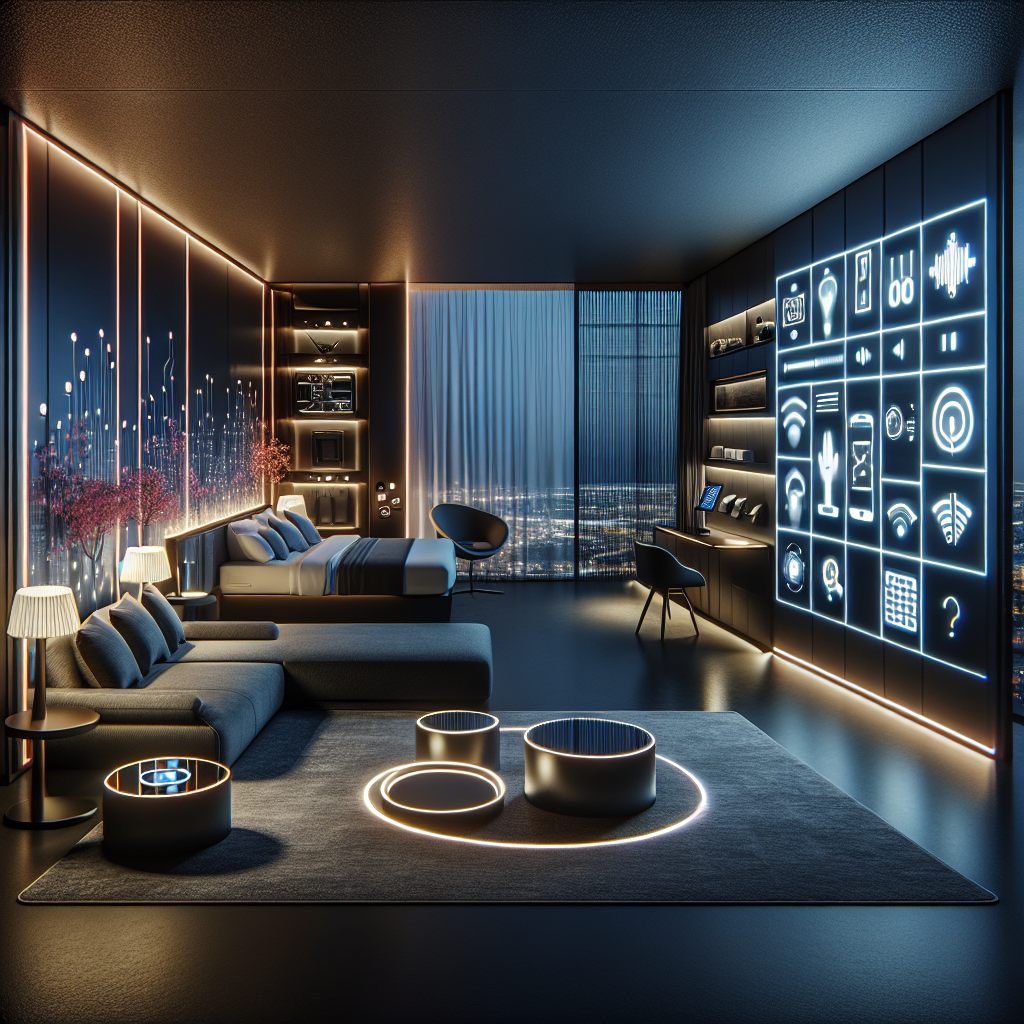In recent years, the hospitality industry has seen a significant rise in the adoption of AI-powered room automation systems in hotels. These systems are revolutionizing the guest experience by providing a seamless and personalized stay for travelers. From voice-activated assistants to smart thermostats and lighting controls, AI technology is transforming the way hotels operate and enhancing the overall guest experience.
AI-powered room automation systems utilize a combination of sensors, data analytics, and machine learning algorithms to automate various functions within a hotel room. These systems can adjust room temperature, lighting, and even control entertainment options based on guest preferences and behavior. By analyzing data such as guest check-in times, room preferences, and past interactions, AI systems can create a personalized experience for each guest, making their stay more comfortable and enjoyable.
One of the key benefits of AI-powered room automation is the ability to increase operational efficiency and reduce costs for hotels. By automating tasks such as room cleaning schedules, energy management, and maintenance requests, hotels can streamline their operations and improve overall efficiency. This not only saves time and resources but also allows staff to focus on providing a higher level of service to guests.
Another advantage of AI-powered room automation is the ability to enhance the guest experience through personalized services. By analyzing guest preferences and behavior, AI systems can recommend personalized experiences, such as local attractions, dining options, and entertainment choices. This level of personalization creates a more memorable and enjoyable stay for guests, increasing customer satisfaction and loyalty.
AI-powered room automation systems also have the potential to improve safety and security in hotels. By integrating with security cameras, access control systems, and emergency response protocols, AI systems can detect and respond to potential threats in real-time. This proactive approach to security not only provides guests with peace of mind but also helps hotels to mitigate risks and ensure a safe environment for all guests and staff.
Furthermore, AI-powered room automation systems can help hotels to reduce their environmental footprint by optimizing energy usage and reducing waste. By monitoring and adjusting room temperature, lighting, and water usage based on occupancy levels and guest preferences, AI systems can help hotels to conserve resources and reduce their carbon emissions. This not only benefits the environment but also helps hotels to save on utility costs and operate more sustainably.
Overall, AI-powered room automation is revolutionizing the hospitality industry by creating smart hotels that offer a personalized and seamless experience for guests. By leveraging AI technology, hotels can improve operational efficiency, enhance the guest experience, increase safety and security, and reduce their environmental impact. As the adoption of AI-powered room automation continues to grow, we can expect to see even more innovative and personalized experiences for travelers in the future.
FAQs:
Q: How does AI-powered room automation work?
A: AI-powered room automation systems utilize sensors, data analytics, and machine learning algorithms to automate various functions within a hotel room. These systems can adjust room temperature, lighting, and control entertainment options based on guest preferences and behavior.
Q: What are the benefits of AI-powered room automation for hotels?
A: AI-powered room automation can increase operational efficiency, reduce costs, enhance the guest experience, improve safety and security, and help hotels to operate more sustainably.
Q: Can AI-powered room automation systems be customized for different hotel brands?
A: Yes, AI-powered room automation systems can be customized to suit the specific needs and branding of different hotel chains. Hotels can tailor the system to reflect their unique style and offerings.
Q: How does AI-powered room automation impact staff roles in hotels?
A: AI-powered room automation systems can streamline operations and automate tasks, allowing staff to focus on providing a higher level of service to guests. Staff roles may evolve to include more personalized guest interactions and troubleshooting of AI systems.
Q: Are AI-powered room automation systems secure?
A: AI-powered room automation systems integrate with security cameras, access control systems, and emergency response protocols to enhance safety and security in hotels. These systems are designed to detect and respond to potential threats in real-time.

